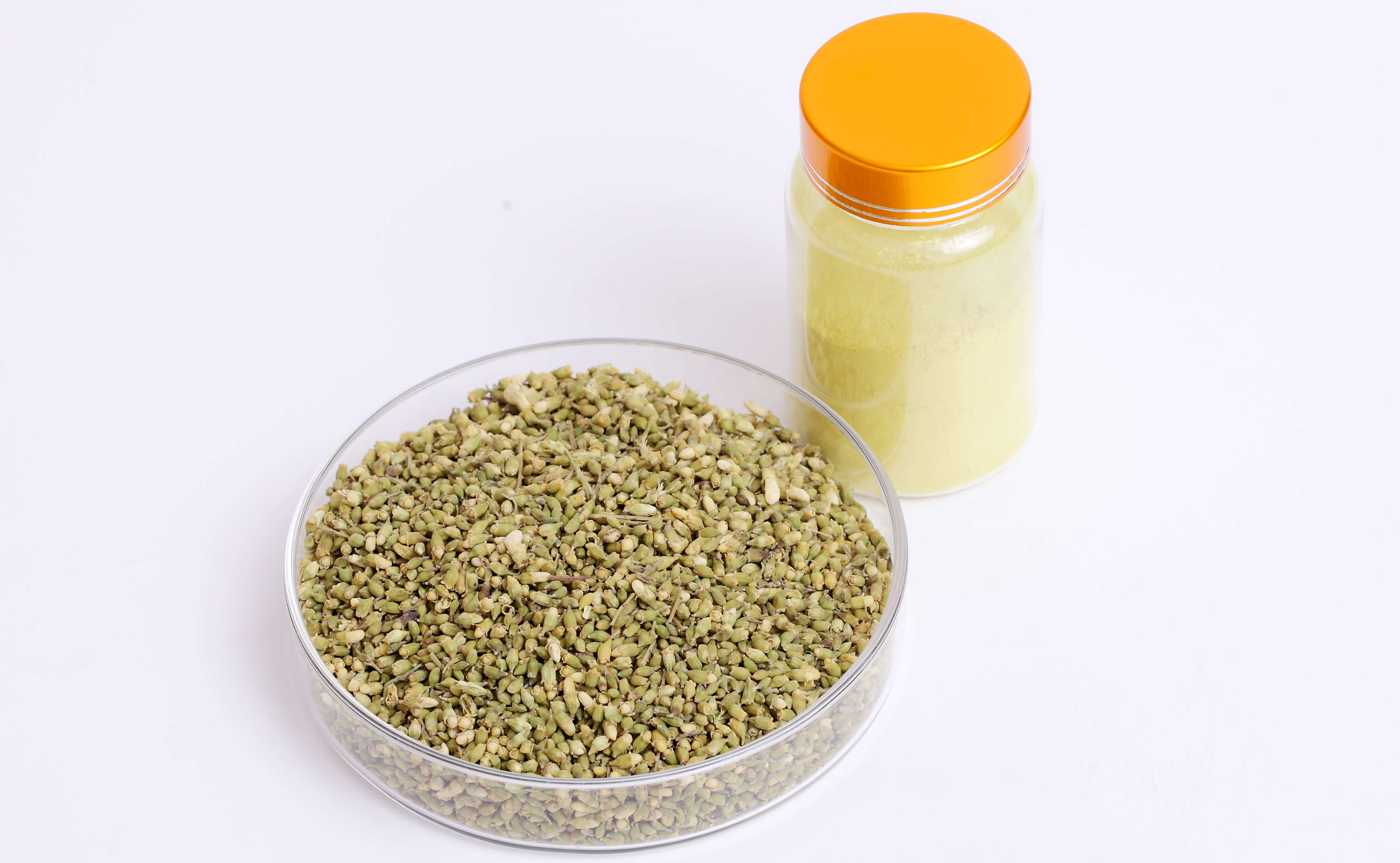Quercetin
Quercetin Dihydrate
Product Name: Quercetin
Botanical Name: Sophora japonica L.
CAS No: 117-39-5
Molecular Formula: C15H10O7
Molecular Weight: 302.24
Color: Yellow-Green powder
Used Part: Flower Bud
Purity: 98% UV
Description:
Quercetin is a type of plant-based chemical, or phytochemical, known as a flavonoid (see also Phytochemicals). Good sources include apples, onions, teas, red wines, and many other foods. Quercetin is also available as a dietary supplement. Quercetin appears to have anti-inflammatory and antioxidant properties. It has been promoted as being effective against a wide variety of diseases, including cancer. While some early lab results appear promising, as of yet there is no reliable clinical evidence that quercetin can prevent or treat cancer in humans.
Quercetin is a potent antioxidant and has anti-inflammatory activity, protecting cellular structures and blood vessels from the damaging effects of free radicals. It improves blood vessel strength. Quercetin inhibits the activity of catechol-O-methyltransferase that breaks down the neurotransmitter norepinephrine. This effect may lead to elevating the levels of norepinephrine and an increase in energy expenditure and fat oxidation. It also means quercetin acts as an antihistamine leading to the relief of allergies and asthma. As an antioxidant, it reduces LDL cholesterol and offers protection from heart disease.
Function:
1. Quercetin may expel phlegm and arrest coughing, it can also be used as anti-asthmatic.
2. Quercetin has anticancer activity, inhibits PI3-kinase activity and slightly inhibits PIP Kinase activity, reduces cancer cell growth via type II estrogen receptors.
3. Quercetin may inhibit histamine release from basophils and mast cells.
4. Quercetin may control the spread of certain viruses within the body.
5. Quercetin may help reduce tissue destruction.
6. Quercetin may also be beneficial in the treatment of dysentery, gout, and psoriasis

- Pre:Rutin NF11 DAB EP
- Next:Bergenin


 Healthier Future
Healthier Future